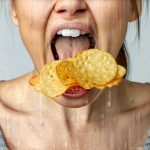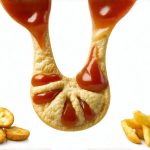The seemingly innocuous act of continuous snacking – grabbing handfuls of chips while working, nibbling on cookies during a movie, or absentmindedly munching throughout the afternoon – can sometimes lead to unexpected digestive distress: loose bowel movements. While often dismissed as minor and temporary, this experience is surprisingly common, and understanding why it happens requires delving into how our digestive system processes food, especially when overloaded with quick succession of intake. It’s not necessarily a sign of illness; frequently, it’s simply the body reacting to an unusually high volume or type of stimuli. Recognizing the factors at play can help you modify snacking habits and potentially prevent these uncomfortable episodes.
This isn’t about deprivation or strict dieting – it’s about understanding the connection between what we consume and how our bodies respond. Our digestive system is designed for meals, not a constant stream of nibbles. The continuous influx challenges its capacity to properly break down food, absorb nutrients, and move waste through the system efficiently. Furthermore, certain snack choices are more prone to triggering loose stools than others. This article will explore the mechanisms behind this phenomenon, offering insights into mitigating factors and helping you navigate your snacking habits for better digestive comfort.
The Digestive System Under Pressure
Our digestive system is a remarkably adaptable machine, but it has its limits. When we eat a meal, a cascade of hormonal signals prepares the gut for incoming food. Saliva initiates breakdown in the mouth, stomach acid begins protein digestion, and then the small intestine takes center stage for nutrient absorption. The large intestine reabsorbs water and forms stool. This process is optimized for intermittent input – periods of eating followed by periods of rest where the digestive system can efficiently complete its tasks. Back-to-back snacking disrupts this rhythm.
The constant stream of food forces the digestive system into overdrive, often without sufficient time to fully process each increment before the next arrives. This can lead to incomplete digestion and a rapid transit time – meaning food moves through the intestines too quickly, leaving insufficient opportunity for water absorption. As a result, stools become looser. The sheer volume can also overwhelm the gut’s capacity, causing distension and triggering increased peristalsis (the muscular contractions that move food along), further accelerating bowel movements.
Consider this: imagine trying to process several large files on your computer simultaneously without adequate processing power. It’ll slow things down, potentially cause errors, and even crash the system. Similarly, continuous snacking overwhelms the digestive “processor,” leading to suboptimal function. The type of snacks also matters significantly; high-fat foods, artificial sweeteners, or those containing fiber can exacerbate this effect. Understanding the link between hormones and digestion is key to understanding these effects.
Snack Choices & Their Impact
Not all snacks are created equal when it comes to digestive impact. Some ingredients are more likely than others to contribute to loose bowel movements when consumed in quick succession. – High-Fat Snacks: These take longer to digest and can overwhelm the gallbladder, potentially leading to diarrhea or urgency. Think fried foods, creamy desserts, or even excessively oily nuts. – Artificial Sweeteners: Sorbitol, mannitol, and xylitol, frequently found in sugar-free candies and gums, are poorly absorbed by the intestine and draw water into the colon, causing osmotic diarrhea. – High-Fiber Snacks: While generally healthy, a sudden influx of fiber without adequate hydration can also cause bloating, gas, and loose stools. This is especially true for snacks like bran muffins or large quantities of raw vegetables.
Furthermore, certain snack combinations can be particularly problematic. For example, pairing sugary snacks with fatty foods can create an imbalance that disrupts digestion. The sugar spikes insulin levels, accelerating gut motility, while the fat slows down digestion. This mismatch can result in rapid transit time and loose stools. It’s also worth noting that individual sensitivities play a crucial role. What causes digestive distress for one person may not affect another. Lactose intolerance or gluten sensitivity, for instance, can be triggered by even small amounts of offending foods consumed as snacks. The effects of high-fat diets can also play a role here.
Identifying Potential Triggers
Pinpointing the specific snack culprits can significantly help in preventing future episodes. Keeping a food diary is an excellent starting point. For several days (or even weeks), meticulously record: – Everything you eat and drink, including snack times. – The type and quantity of each snack. – Any digestive symptoms that follow, noting the timing and severity. – Any other relevant factors, such as stress levels or physical activity.
This detailed log allows you to identify patterns and correlations between specific snacks and your digestive response. It’s also helpful to consider elimination diets under the guidance of a healthcare professional if you suspect a food intolerance. This involves removing suspected triggers from your diet for a period and then gradually reintroducing them one at a time, carefully monitoring for any symptoms. If urgent bowel movements are a recurring issue, exploring hidden reasons may prove helpful.
Modifying Snacking Habits
Once you’ve identified potential triggers, you can start modifying your snacking habits to minimize digestive distress. – Space out snacks: Aim for several hours between snacks rather than continuous nibbling. This gives your digestive system time to catch up and process food effectively. – Choose whole foods: Opt for nutrient-dense snacks like fruits, vegetables, or a small handful of nuts instead of processed options loaded with sugar, fat, or artificial ingredients. – Hydrate adequately: Drinking plenty of water throughout the day is crucial for proper digestion and can help prevent constipation or diarrhea.
Consider mindful eating practices. Pay attention to your hunger cues and avoid snacking out of boredom or emotional reasons. Eating slowly and savoring each bite allows your brain to register fullness, preventing overconsumption. It’s also important to remember that small changes can make a big difference. You don’t have to eliminate all snacks; simply adjusting the timing, quantity, and type of snacks you consume can significantly improve your digestive comfort. Proper hydration is vital for optimal digestion.
When To Seek Further Evaluation
While loose bowel movements after back-to-back snacking are often benign, there are situations where medical evaluation is warranted. – Persistent symptoms: If diarrhea persists for more than a few days or is accompanied by other concerning symptoms like fever, blood in the stool, severe abdominal pain, or dehydration, seek medical attention immediately. – Underlying conditions: Individuals with pre-existing digestive disorders such as irritable bowel syndrome (IBS) or inflammatory bowel disease (IBD) may be more susceptible to snack-related digestive issues and should consult their healthcare provider for personalized advice. Understanding how digestive enzymes influence digestion can also be useful here. – Unexplained weight loss: If loose stools are accompanied by unexplained weight loss, it could indicate a more serious underlying health issue that requires evaluation.
Remember, this information is not intended as medical advice. It’s crucial to listen to your body and seek professional guidance if you have any concerns about your digestive health. A healthcare provider can help determine the cause of your symptoms and recommend appropriate treatment or management strategies. The pelvic floor also plays a role in bowel function, so consider consulting with a specialist if needed. Finally, be mindful of medication impacts.


















